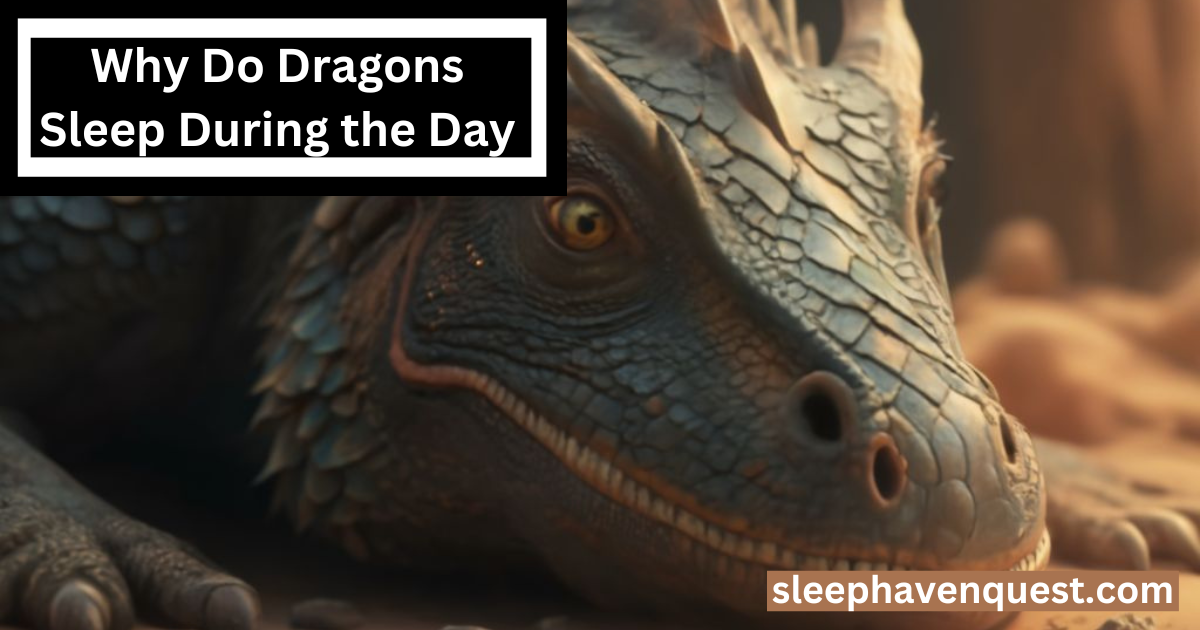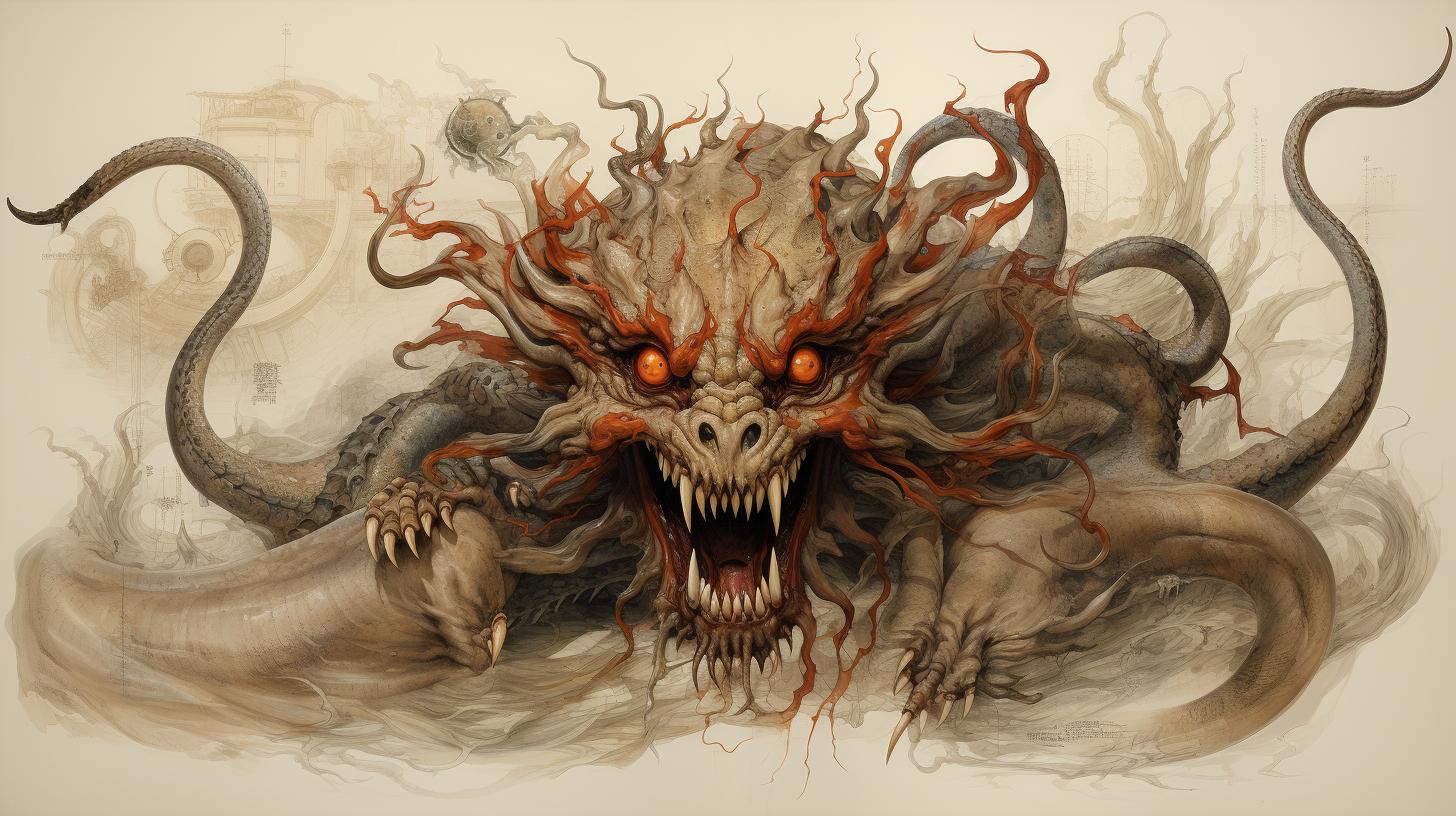Physical Address
304 North Cardinal St.
Dorchester Center, MA 02124
Physical Address
304 North Cardinal St.
Dorchester Center, MA 02124

Dragons sleep during the day to conserve energy for hunting at night. Nighttime provides them with cover and strategic advantage.
Dragons, mythical creatures of great power and mystery, have fascinated humans for centuries. Legends often depict them as nocturnal beings, preferring the cover of darkness for their activities. This nocturnal nature aligns with their predatory habits, allowing them to utilize the night as a cloak for surprise attacks on their prey.
The darkness also aids in avoiding larger predators or humans that might threaten them during the vulnerable state of sleep. By sleeping during daylight hours, dragons maximize their survival capabilities, embracing the night’s camouflage and cooler temperatures for their energy-intensive exploits. Understanding dragon behavior sheds light on the rich tapestry of lore surrounding these majestic creatures.
Dragons spark wonder and curiosity in all of us. Legends often tell of these magnificent creatures sleeping during the day. But why? Let’s unravel the hints buried in folklore to understand the nocturnal habits of these mythical beasts. Are dragons really creatures of the night? We’ll explore historical accounts and the fabled night lives of dragons to get to the bottom of this enigmatic behavior.

Dragons have deep roots in myths across the world. Their stories vary from culture to culture. Each tale offers a glimpse into why dragons might prefer the moon’s cover over the sun’s rays.
These historical snippets create a picture of dragons as powerful beings thriving under the veil of night, adding to their mysterious aura.
Legend says that dragons come alive with the stars. They engage in various activities unseen during daylight hours.
Silence and the absence of humans at night offer the perfect setting for these majestic creatures to carry out their secret lives.
| Behavior | Reason |
|---|---|
| Seclusion | Dragons seek peace away from human disturbance. |
| Hunting | Nighttime provides cover and strategic advantage. |
| Magic Use | The night offers a powerful time for mystical activities. |
By scrutinizing these behaviors, we can see why dragons are linked with the night. Their mysterious, nocturnal essence continues to fascinate us. While daybreak brings rest for these creatures, the cloak of night is when their tales truly come to life.

Credit: oldworldgods.com
Dragons, the majestic creatures of legend, seem bound by a mysterious sleep cycle.
Why do these mythical beings slumber through daylight hours? Intriguing theories suggest their sleep patterns could be rooted in biology, much like earth’s living creatures.
Let’s delve into the curious world of dragons and uncover the secrets behind their diurnal rest.
To understand dragon sleep habits, we compare them with real-world animal behaviors.
Perhaps dragons, like many predators, avoid the heat and competition by choosing off-peak hours for their activities.
Biologists speculate dragons could match these patterns for strategic advantage.
Sleep rejuvenates, even in the realm of myth.
The magic and might of dragons may hinge on their restful slumber.
| Sleep Quality | Effect on Powers |
|---|---|
| Deep Sleep | Enhanced fire-breathing abilities |
| REM Sleep | Sharper magical senses |
| Interrupted Sleep | Weakened flight endurance |
Drawing parallels with animals, healthy sleep cycles are crucial for these creatures. Dragons may harness the restorative nature of sleep to maintain their fearsome prowess and mystical abilities.
Dragons are creatures of mystery, with habits that intrigue us. They sleep during the day. Let’s explore why they do this. Nature plays a big role. We’ll look at their homes and how they stay safe from harm.
Different homes mean different behaviors. Dragons adapt to where they live. This helps them to survive.
Staying safe is key. Dragons have smart ways to keep out of danger when the sun is up.
| Adaptation | Description |
|---|---|
| Camouflage | Scales reflect the surroundings. |
| Silent Flight | Wings make no sound. They move without notice. |
| Sharp Senses | Ears and noses sense danger while asleep. |

Credit: www.facebook.com
In myths, day and night hold great power. The sun breathes life and clarity, while night whispers secrets and mystery. Dragons, fierce beasts in legends, often sleep during daylight. This habit stirs curiosity and questions. Why would such powerful creatures choose the calm of day for rest?
Dragons slumbering by day might seem odd at first. Yet many cultures have tales to explain this. These stories link dragons to night-time elements.
Dragons embrace the dark. Here, they wield secrets and ancient truths.
In myths, dragons at night often represent:
| Dragon’s Aspect | Night Symbolism |
|---|---|
| Power | Majestic strength unseen in the light |
| Mystery | Hidden knowledge only found in shadow |
| Fear | Unknown threats that lurk in the night |
As guardians of the unknown, dragons in darkness suggest both fear and respect. They hold dominion over secrets waiting to be revealed with the moon’s rise.
In the realm of popular media, dragon folklore often portrays these majestic creatures as being day-sleepers. The notion captures our imagination, setting up scenes of daring nights when heroes creep past slumbering beasts. This concept is widely accepted, but why exactly do dragons in tales and films prefer to slumber under the sun’s watchful eye? Let’s explore how this unique behavior is depicted across various forms of storytelling.
The image of a dragon dozing atop its gold hoard is iconic in fantasy literature. In stories, this daytime inactivity serves many purposes. For writers, it creates suspense and opportunity for characters. Heroes often plan their missions for daylight hours, banking on the dragon’s predictable slumber. Famous literary works present dragons as creatures of the night, their fearsome qualities amplified by darkness. Cinematic portrayals usually follow suit, using state-of-the-art visual effects to bring these sleeping behemoths to life in a way that both terrifies and fascinates the audience.
Today’s stories sometimes challenge traditional views. Contemporary fantasies introduce dragons with varied sleep patterns, mirroring real-life animals’ adaptability. Authors are reimagining dragons as intelligent, active day creatures, or even as beings with no need for sleep at all. These innovative interpretations breathe fresh air into the archetype, offering a twist on the classic lore that keeps these mythical creatures relevant in today’s culture. Films and series often reflect these modern portrayals, adding layers to their dragon characters and making them more than just midnight menaces. Modern dragons serve complex narrative roles, with their sleeping habits key to unlocking their unique personalities and stories.
Welcome to our exploration into the intriguing behaviors of dragons. Specifically, we delve into the scientifically plausible explanations for why these mythical beasts might choose to slumber during daylight hours. An analysis from a biological and ecological perspective offers surprising insights.
Dragons, like many reptilian creatures, could exhibit behaviors similar to those observed in the animal kingdom for maintaining optimal body temperature. The theory of thermoregulation suggests that sleeping during the day allows them to avoid the heat, which could be harmful.
Dragons would likely require vast amounts of energy to function. By sleeping during periods of high activity and potential conflict, they conserve energy. This strategy ensures they have the resources needed for critical activities like hunting and defending territory.
Dragons, mythical as they are, are often depicted sleeping during the day to conserve energy. This behavior is because their hunting and activity peak at dawn or dusk when their prey is most active. It aligns with the crepuscular habits some predators exhibit in fantasy lore.
Daytime sleep lets dragons evade the hottest part of the day, conserving energy for nighttime activities. It also aligns with their role in myth as guardians; they rest when human activity is highest and remain alert when it dwindles, effectively protecting their lair.
Myths often suggest that dragons sleep on treasure to intimidate potential thieves with their presence, even while resting. Some legends imply they draw power from the sun during sleep, enhancing their magic or healing abilities, adding to their mystique.
Compared to other mythical creatures, dragons are often depicted as having longer slumber patterns, which is thought to be due to their massive size and the considerable energy required for flight. Their sleep habits serve as a plot device to show their dominance and power.
Understanding the sleeping habits of dragons reveals much about their mystical nature. They rest by day to conserve energy for nocturnal activities. Their behavior captivates our imagination, just as their legendary prowess does. Embrace these fascinating creatures of lore, and let their stories ignite your dreams under the moonlit sky.